FIL-KOREAN KIDS JOIN EVENTS TO CLOSE MULTICULTURAL PROGRAM
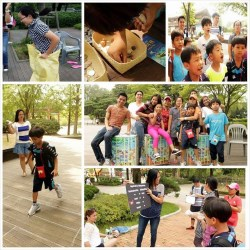
(Counterclockwise from bottom right) Filipino-Korean children compete in the Amazing Race-style scavenger hunt, piko (Filipino version of hopscotch), sack race, and taking instructions as well as answering questions in Filipino language at the Seoul Children’s Grand Park for the Filipino Camp on Saturday, 16 August 2014. The participating children and members of the Pinoy Iskolars sa Korea (PIKO) pose in front of the Philippine discovery boxes lent by Korea’s National Folk Museum Children’s Museum specifically for the event.
SEOUL, 24 August 2014 – The Philippine Embassy in Seoul, together with the Seoul Metropolitan Government and two Filipino community organizations, held on 16 August 2014 outdoor games and a ceremony to close a 10-week program of Filipino language classes and family development sessions for Filipino women and their multicultural children.
The Filipino camp was held at the Seoul Children’s Grand Park and Sejong University as the culmination of “Wika Nga! Filipino Language Classes for Filipino-Korean Childrenâ€, weekly two-hour sessions launched by Philippine Ambassador to Korea Raul S. Hernandez at the Seoul Global Center (SGC) on 14 June for 11 children aged 6-12 and their 10 mothers.“With the completion of this pilot program, we look forward to evaluating it and improving upon it to make it the cornerstone of a more comprehensive and proactive engagement the Embassy, in collaboration with local authorities and Filipino community organizations, would like to have with multicultural families through education,†Ambassador Hernandez said.
The language classes were designed and taught by Filipino instructors led by Ron Laranjo, President of the Pinoy Iskolars sa Korea (PIKO), and Noreen Ann Lindo, while the family development sessions were facilitated by Social Welfare Attaché Lucita J. Villanueva, for members of the Seoul Filipino Parent and Children Organization (SFPCO).
“The more seeds you sow, the more you reap what you sow,†SGC Head Steve McKinney told the 40 participants in brief remarks at the closing ceremonies at the Gwangaeto Building in Sejong University, reminding them that hard work and constant efforts will always be rewarded with good results.
First Secretary and Consul Deric Atienza, the Embassy’s education officer, congratulated the mothers and their children for sticking to the project, which will serve as a template for a broader program in large Filipino-Korean multicultural communities throughout Korea.
The formal program, which was held for nine weeks at centrally located Seoul Global Center, was aimed at providing a venue for Filipino-Korean children how to speak basic Filipino and how to appreciate their Filipino heritage, using Korean as the medium of instruction, while training their Filipino mothers how to teach their children even after the program.
At the Filipino Camp, the children joined in an Amazing Race-style scavenger hunt using instructions in Filipino language and played traditional Filipino games, such as sack race, kadang-kadang, and hopscotch, with PIKO members as facilitators, before proceeding to Sejong University to receive certificates and partake in a Filipino luncheon.
The National Folk Museum Children’s Museum lent their Philippine Discovery Boxes to the Filipino Camp and donated Philippine cultural kits while the Embassy donated gift packs for distribution to all the participating children.
The program is unique because Filipino-Korean children normally do not have any opportunities to learn Filipino language or culture at school or at home in Korea. Many Filipino mothers are often not in a position to assert their Filipino identity in their own homes. As a result, the children identify more with the Korean culture of their father’s family.
Despite the slow evolution of public attitudes toward multiculturalism, fortunately, Korea’s Confucian values puts great emphasis toward education, so the Embassy emphasized from the beginning the usefulness of acquiring the national language of the Philippines, whose economy is now the best in Asia after China.
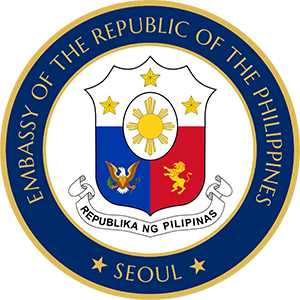


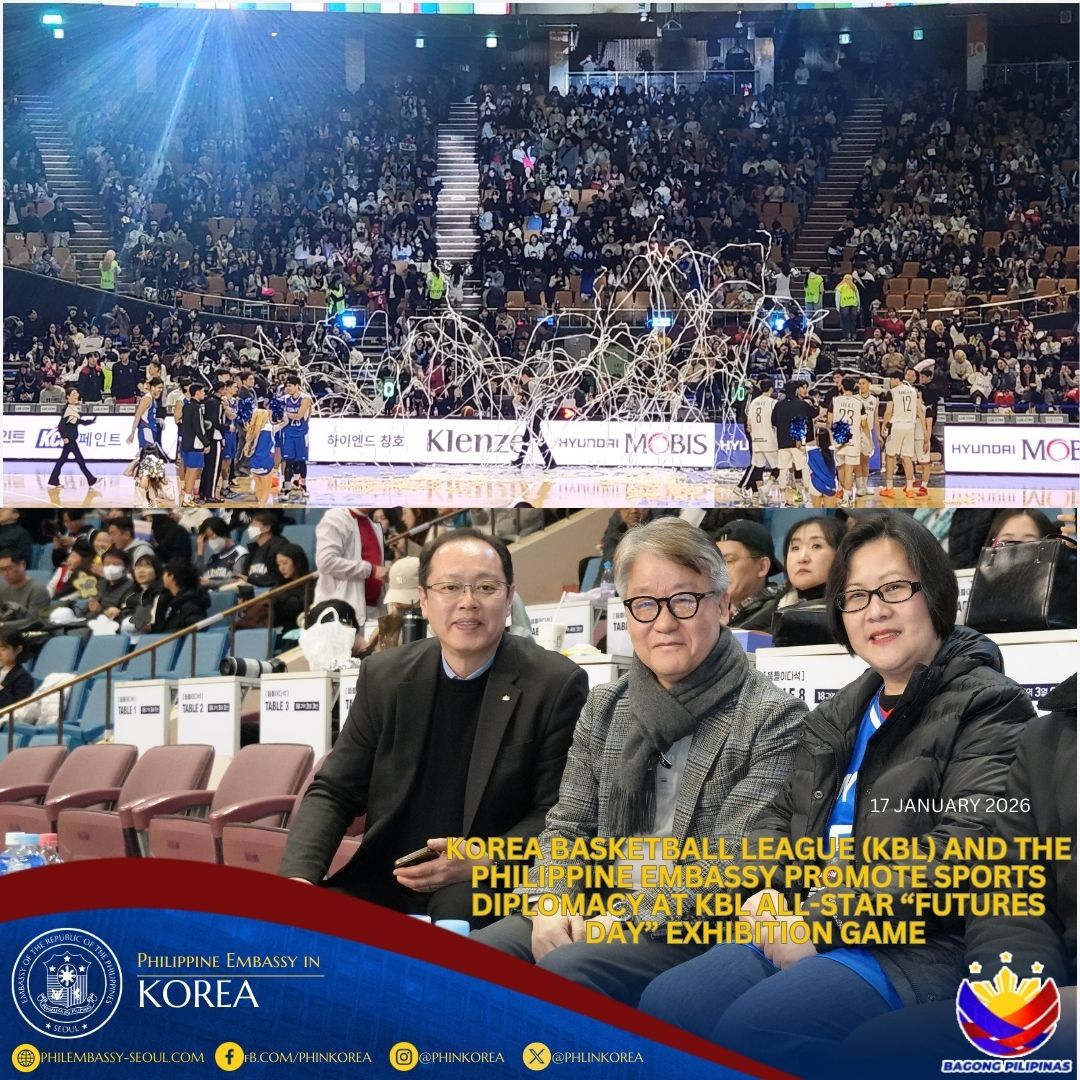 January 21, 2026
January 21, 2026
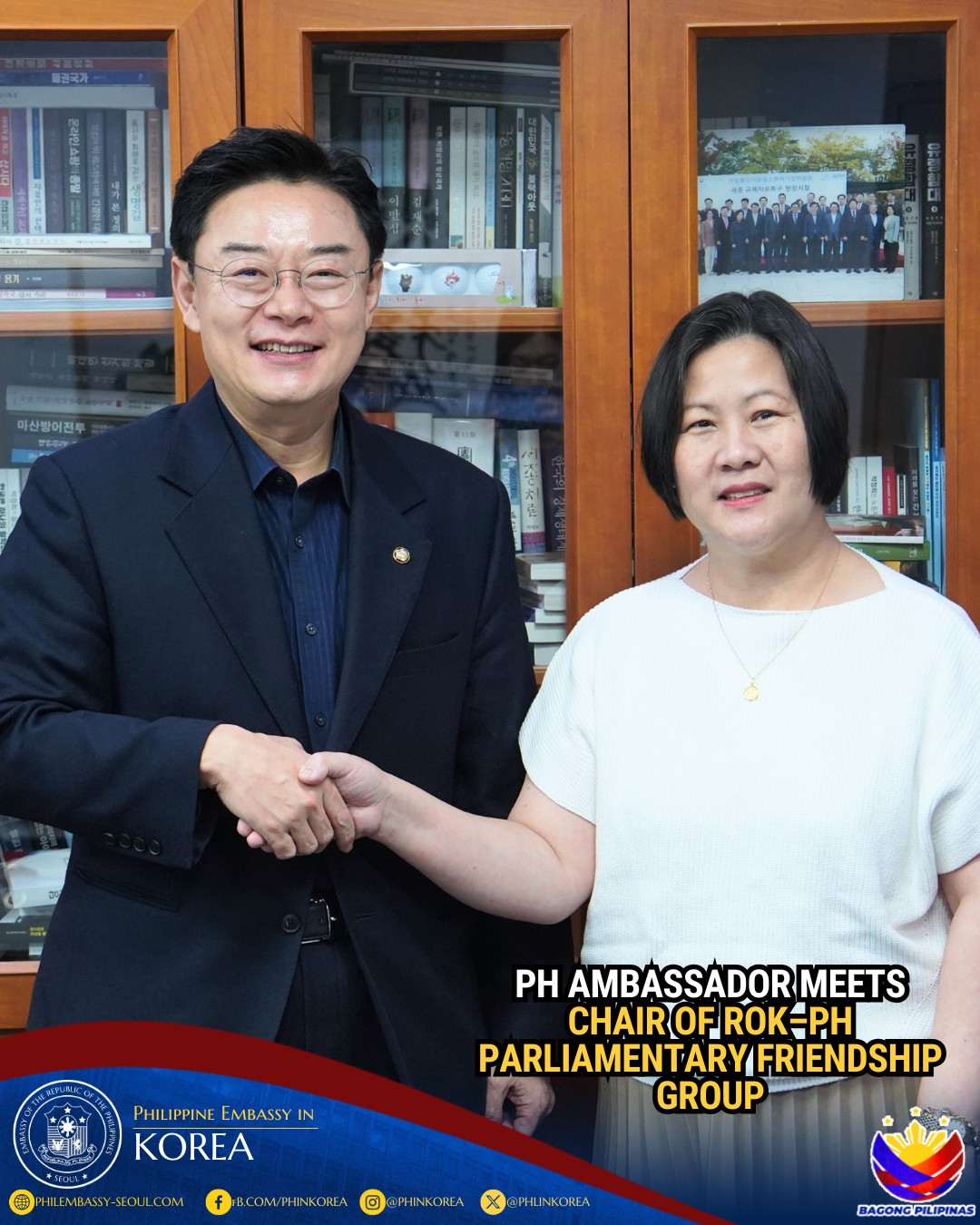 January 13, 2026
January 13, 2026
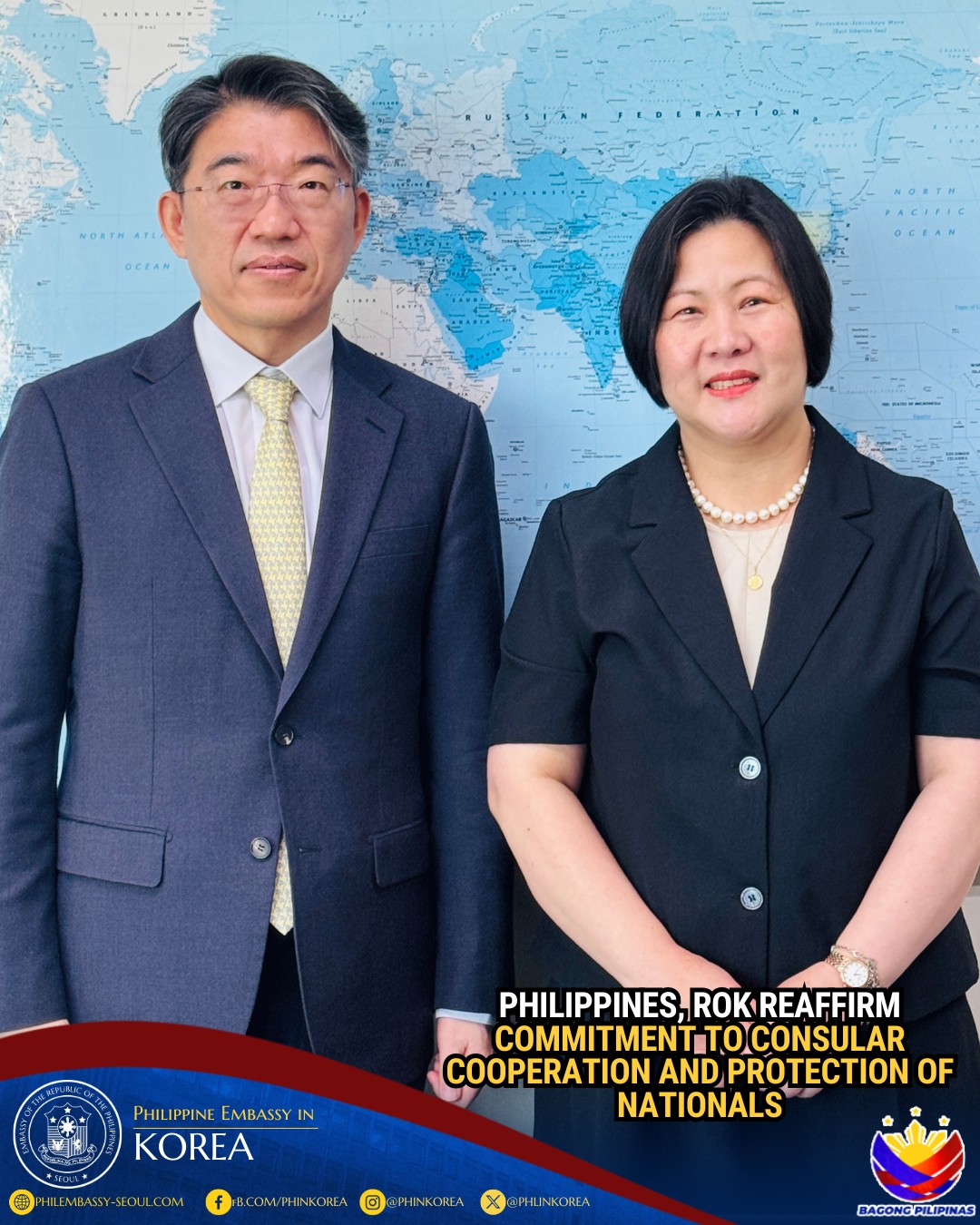 January 12, 2026
January 12, 2026
